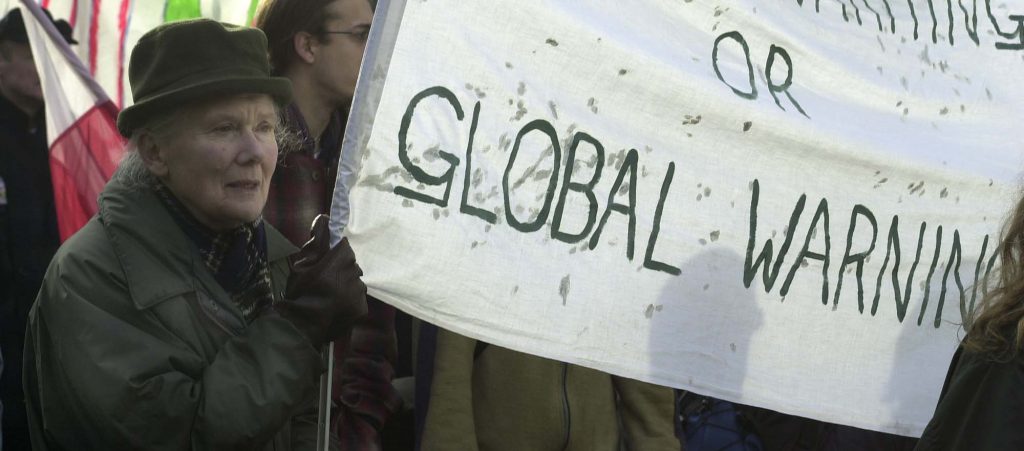Brussels, 7 October 2008 – MEPs voting in the European Parliament’s environment committee today have confirmed the European Commission’s proposed answer to climate change, but have lacked the ambition to go further, said Climate Action Network Europe (CAN Europe), Greenpeace, WWF and Friends of the Earth Europe (FoE Europe).
The committee voted this morning on a review of the emissions trading scheme and ‘effort sharing’ (which allocates each country its share of emission reductions in sectors not covered by the carbon market). The climate package hot potato will now be handed to EU environment ministers, who will be under pressure to reach a stronger agreement by the end of 2008.
Overall emission reduction targets
Tomas Wyns, CAN Europe’s ETS senior policy officer, said: “The Parliament resisted attempts to block the move from a 20 per cent to a 30 per cent emission reduction by 2020 in the event of an international agreement. Keeping the 30 per cent target alive sends an encouraging signal to our international partners in the run-up to Poznan and Copenhagen. All eyes now are on Europe’s environment ministers. The ball is now in their court. Will they show the climate commitment needed by developed countries to make an international deal possible by 2009?”
Effort sharing
Sonja Meister, climate campaigner at FoE Europe, said: “Despite crucial improvements today, Europe’s politicians continue to fail to make the overall commitments consistent with avoiding the worst consequences of climate change.” The environment committee voted for strong measures including financial penalties to make countries meet their emission reduction targets. “Parliamentarians agreed that the EU needs a climate policy with teeth to make sure member states meet their targets year-on-year. The time is over when countries simply ignore their emission reduction targets. But unfortunately MEPs have shied away from showing real leadership by not asking countries to do enough in the first place.”
Helping developing countries
Regarding help for developing countries to mitigate and adapt to climate change, the committee voted for binding support from the EU and to earmark half the revenue raised from auctioning emissions permits to industry. “MEPs took a momentous step forward by voting to make support for developing countries, including setting aside huge sums of money, a central piece of the package. With this commitment Europe would finally start to fulfil its historical obligations for having caused climate change,” said Sonja Meister.
More subsidies to coal
Joris den Blanken, Greenpeace EU climate and energy director, said: “MEPs have supported a half-hearted response to the challenge of climate change.” The Parliament voted to give CO2 credits worth 10 billion euros to carbon capture projects. “We won’t put the coal age behind us if we give carbon capture and storage a blank cheque. Carbon capture is an expensive gamble that gives coal a lifeline when what we should be doing is phasing out fossil fuels, switching to renewables and improving efficiency,” said den Blanken.
Forest credits
The environment committee also signaled they would be willing to accept the inflow of forest offset credits in the emissions trading scheme, contrary to the Commission’s recommendations. “If companies start trading in forest credits, the price of carbon could crash. Most importantly, the EU will have to assume responsibility for the negative impacts of questionable forest offset projects on human rights and biodiversity,” said den Blanken.
Shying away from domestic responsibilities
Delia Villagrasa, senior advisor at WWF, said: “Science tells us that developed countries should reduce their emissions by 25-40 per cent. But as a result of the environment committee vote, countries and industries can buy their way out of their required emissions reductions by offsetting about a third of their effort, buying external credits, but without a guarantee that such offsets comply with solid environmental and social criteria.
“Industries, except for the power sector, have been largely exempted from the polluter pays principle at the beginning, but move to full auctioning in 2020. It is clear that the EU is so far only partway down the road to being world leader against climate change.”
Keeping global warming below 2 degrees Celsius is the focus of the new ‘Time to Lead’ campaign – www.timetolead.eu – from Climate Action Network Europe, Friends of the Earth Europe, Greenpeace and WWF.



![]()






